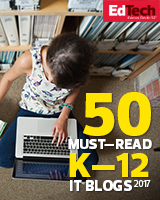Writing Navigator: Supports literacy standards, makes your life easier, free

With the coming of the Common Core Literacy Standards for History / Government, the NCSS national standards, and the adoption of new social studies standards in Kansas, I’ve seen a ton of classroom teachers get stressed out about the whole reading and writing thing.
I get it.
For a long time, classroom teachers were told that simple memorization of content was good enough. And now? Expectations have changed. It’s can just be lecture, quiz, worksheet, test anymore. We’re being asked to train kids to read, write, and communicate solutions.
And classroom teachers are freaking just a bit:
- My kids won’t ever be able to do this.
- I’m a government teacher, not a reading teacher.
- How are we supposed to grade this?
I get it. It’s new. It can be a bit intimidating.
We all can use a little help now and again. And if we could find some sort of free, online tool that scaffolds the writing process for our students, even better.
If only there were such a tool available, what a Merry Christmas this would be. If only.Apparently . . . you all must have been good little boys and girls because such a tool exists and it just showed up in your stocking. Called the SAS Curriculum Pathways Writing Navigator, the tool is a free, online suite of tools with mobile versions that provides guidance and support throughout the writing process: planning, drafting, revising, and publishing. The suite includes four products that guide students through the writing process. Each stage in the process has tons of guiding questions and prompts that support the creation of quality writing products, large and small.
The extra stocking stuffer? It’s available for a variety of platforms: including the web, iPad, and Chromebook.
The four stages:
Writing Planner
Students determine their purpose and audience. They generate ideas and organize a plan, gather research information, group and sequence their ideas, and review their writing plans. During the whole process, students can save their work online or locally on their device.

Writing Drafter
Students transform their plans into first drafts. They develop sentences, supporting details, and transitions; create introductory and concluding paragraphs; gather research information; and analyze their writing to improve sentence patterns and transitions.
Writing Reviser
Students refine their draft and gather research information. They focus on organization, sentence structure, and diction. By learning to ask questions experienced writers ask automatically, students begin to express themselves with greater precision and power. The Reviser provides some very sweet tools for measuring stuff such as passive voice, sentence structure, sentence variety, repetitive words and phrases, verb tense, and cliches.
Writing Publisher
Students complete their research and finish their essay. They use tools for proofreading. For research papers, they document sources using an innovative feature that generates internal citations and a Works Cited page. The biggest disappointment? It seems as if there are only two methods of publishing the finished product – MS Word docx version and by emailing a link to an online version. That really needs to include at least a PDF version.
But it’s still a very useful tool that can provide some immediate relief for teachers and students struggling to create writing products. It’s a perfect example of the Create and Communicate elements of the C4 Framework.
And for those teachers who have been integrating the reading and writing all along, the Writing Navigator becomes just one more strategy that supports quality instruction.
Supports literacy standards. Makes your life easier. It’s free. It must be the Holiday season.



















Another great one! I am in the rabbit hole of SAS – I already had an account, just never explored.
Thanks Glenn!
Becky
Becky Ryckeley Coordinator for Social Studies, Gifted, and Advanced Placement Fayette County Schools 205 LaFayette Avenue Fayetteville, Georgia 30214 (770) 460-3990 ext. 258 Fax: (770) 460-3925
Please visit the new and improved Curriculum and Instruction website .
*What we have to learn to do, we learn by doing. –Aristotle*
I was the same way – always had an account but never really dug around much! I also am loving the new social studies lessons.
Have fun!
glennw
Reblogged this on Deeper Thoughts and commented:
This is good to know.
Dear Colleagues,
As of now, there will not be new standards for History-Social Sciences; at least for the State of California. Literacy standards will continue to be embedded in the History-Social Sciences. As classroom teachers arenât we supposed to be teaching reading/writing/speaking/listening skills. The addition of media/multi-media just makes teaching super fascinating.
Eleanor Evans
2010 Commission Common Core Academic State Standards, State of California, Department of Education
Thanks for the comment. I’m seeing lots of places who are simply embedding literacy skills into the social studies standards. The concern I have is that this can often lead to a focus on the literacy rather than social studies.
But I do agree – SS teachers should have always been teaching literacy skills.
glennw